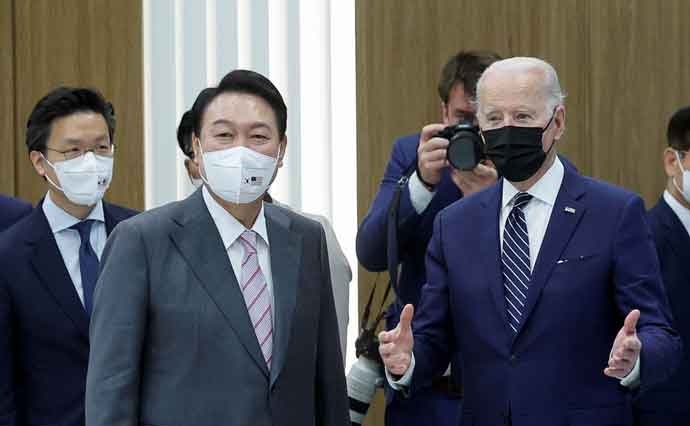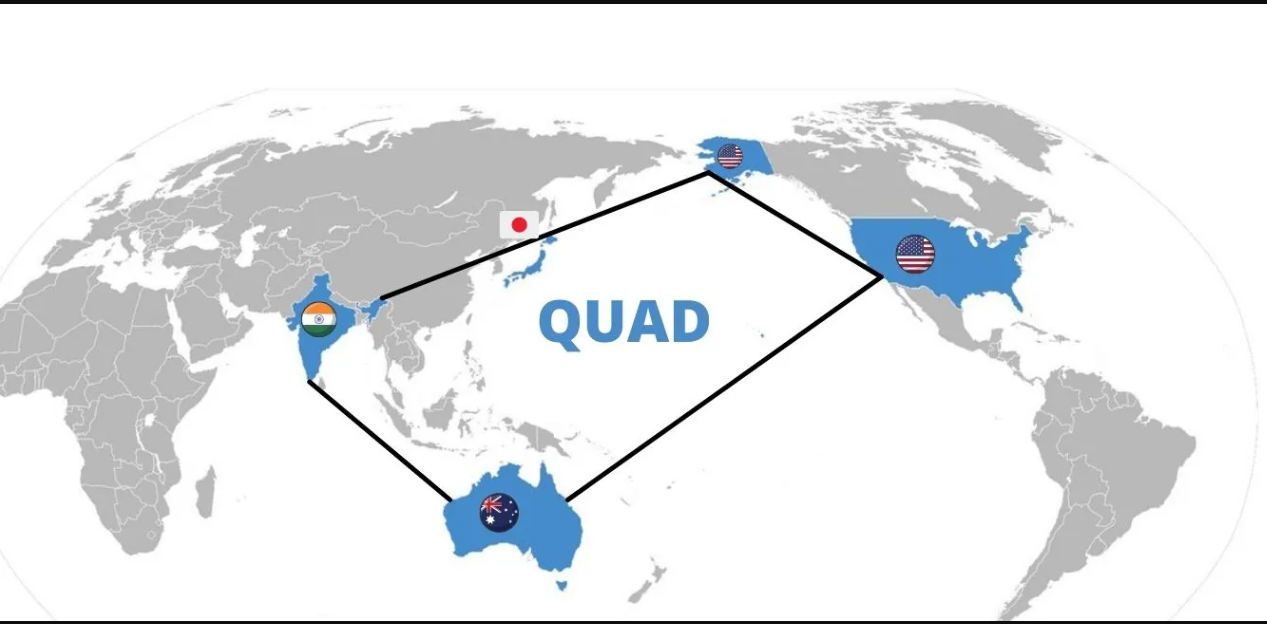Shen Dingli, Professor, Institute of International Studies, Fudan University
May 31, 2022
There was nothing new revealed in the U.S. president’s visit, other than launching Indo-Pacific Economic Framework. Roping in Japan and South Korea and declaring that the U.S. would “intervene” in a Taiwan conflict, all amounted to old news.
David Shambaugh, Gaston Sigur Professor and Director of China Policy Program at George Washington University, Distinguished Visiting Fellow at Hoover Institution of Stanford University
May 31, 2022
As President Biden attends his first in-person meetings in Asia, who he’s visiting and their respective agendas can inform our observations on what the U.S. strategy will be in dealing with China’s neighbors.
Liu Chang, Assistant Research Fellow, Department for American Studies, CIIS
May 30, 2022
Lacking concrete detail, the framework is burdened by great uncertainty. Moreover, the United States seems to be sending a decoupling signal to China — a questionable strategy. If the U.S. continues along this line, it will be hard to win confidence and cooperation from countries in the Indo-Pacific region.
Tang Xinhua, Associate Researcher, Tsinghua University’s Institute of International Relations
May 30, 2022
The goal of the United States in creating the IPEF is to gain an asymmetric technological advantage over China and to create an environment for long-term competition. It wants a new rules-based Indo-Pacific order forged in its own image.
Tao Wenzhao, Honorary Member of the Chinese Academy of Social Sciences; Fellow, CASS Institute of American Studies
May 30, 2022
The IPEF as yet has no real content, so people are understandably mystified. America wants to drive a wedge between regional countries and China. But this won’t work, as China is already embedded. Supply chains will not be altered on a whim.

Zhao Minghao, Professor, Institute of International Studies at Fudan University, and China Forum Expert
May 24, 2022
Washington is looking to shore up its Indo-Pacific strategy by further roping in South Korea and Japan. Its strategy is alive and well despite the Russia-Ukraine conflict, and China’s peripheral diplomacy will continue to face thorny challenges.

Zainab Zaheer, Development Consultant
May 20, 2022
Besides tackling COVID-19 and climate change, a unifying force within the Quadrilateral Security Dialogue is undoubtedly the member countries’ response to China. As the May Quad summit is underway, analysts must assess both how the Quad will react to China as well as how China will respond to the Quad alliance.
Doug Bandow, Senior Fellow, Cato Institute
May 12, 2022
China’s overtures to Pacific Island states has been met with somewhat sharp rebuffs from U.S. and Australian officials - attacks that one might say mirror China’s oft-criticized foreign relations methods. The emphasis on military force in the Pacific underscores the importance of this part of the world to the future of the international order.

Yang Wenjing, Research Professor, Institute of American Studies, CICIR
May 04, 2022
China is gaining influence for a reason: Its approach is helpful — and this irritates the United States. But the Solomon Islands is a sovereign country and as such is entitled to develop security relationships as it sees fit.
Richard Javad Heydarian, Professorial Chairholder in Geopolitics, Polytechnic University of the Philippines
May 03, 2022
South Korea is signaling a dramatic reorientation in its foreign policy, and it could become a key player in an expanded Quad platform.
Back to Top

- China-US Focus builds trust and understanding between the U.S. and China through open dialogue among thought leaders.
- Our Offerings
- Topics
- Videos
- Podcasts
- Columnists
- Research Reports
- Focus Digest
- Stay Connected
-
Thanks for signing up!
- Get the latest stories from China-US Focus weekly.